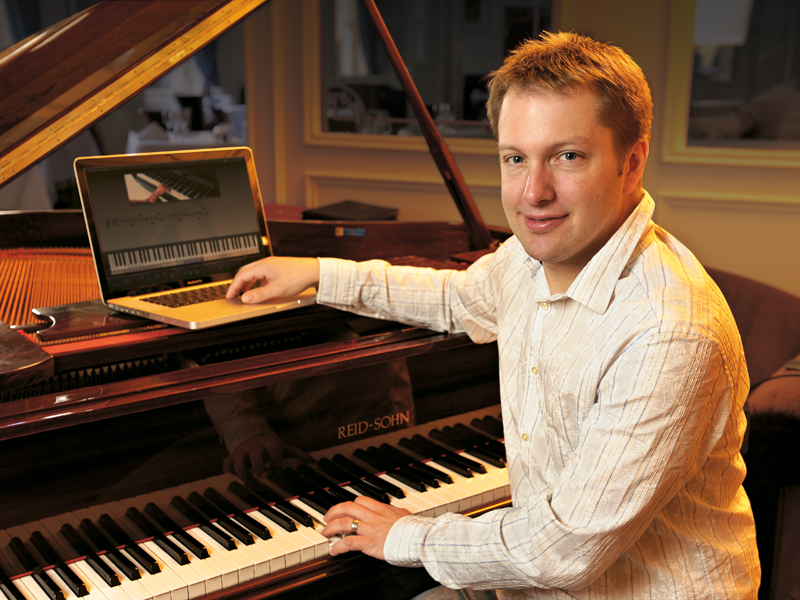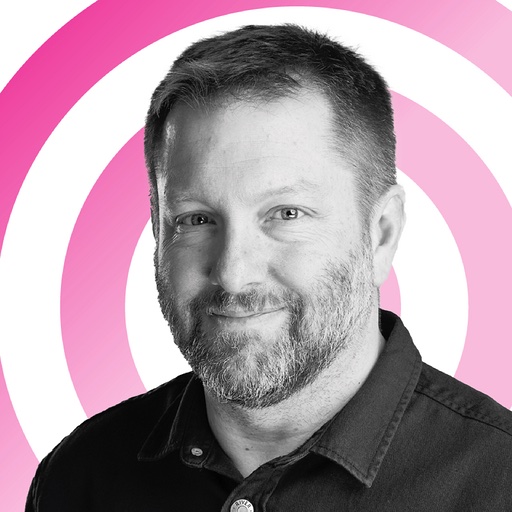Can GarageBand really teach you an instrument?
Our mission: 28 days to learn the piano with GarageBand 09

Sign up for breaking news, reviews, opinion, top tech deals, and more.
You are now subscribed
Your newsletter sign-up was successful
"Hi, I'm Tim," says the geeky/cool presenter (just the type you'd expect from an Apple video). "I'm going to teach you how to play the piano."
Good luck, Tim, I thought, this could be a difficult job because I've never sat at a piano or keyboard, let alone played one. But I felt the time was right to learn a new instrument.
It's more appealing having a video lesson built into the software I already use (with my guitar) than buying instructional DVDs, books or paying a piano teacher. When I learnt the guitar, there were no DVDs, no internet and no GarageBand. Could the video lessons teach me a new instrument in one short month? Let's find out.
Day 1
After Tim ingratiates himself, he explains the layout of the piano and that yours may be a bit different to the grand piano he's playing. And he's not joking – the picture of me here is just for show. In reality I'm sat with an M-Audio KeyRig 49 on my lap.
Although it doesn't emit any sound unless it's plugged into your Mac and, in this case, GarageBand, it seemed like a good option, having full-size keys and coming in at only £60. Luckily, as I'm familiar with chords and octaves, Lesson 1 was easy.
I'm still going to spend at least three hours working on the same chord sequence, just to get my brain talking to my fingers (I believe they call it fingering). Tim continued, explaining the use of the sustain pedal (which I don't have) and then going on to talk about chords and their 'root' (the note that the chord is based upon).
Sign up for breaking news, reviews, opinion, top tech deals, and more.
He also explained which fingers to use (numbering them 1-5) to play simple chords and how to sit at the piano. Very informative, thanks Tim. So, I began practising the chord sequence that Tim had shown me: C, G, F.
Day 4
I've tried to give at least an hour a day to learning to play – and that's the intention going forward. It's not easy but, unlike my exercise programme, I'll try to keep this up.
I've completed Lesson 2, where my new friend Tim has shown me the basics of reading music. It's going to be a while before I fully understand the intricacies of notation, but Tim's advice is simple and easy to follow. I now understand staffs, treble clefs and know where the notes on the staff are in relation to the piano.
Taking Tim's advice and the old piano teaching standards FACE and Every Good Boy Does Fine help me. Here I would research through books and the web; but I'm sticking to GarageBand. Each lesson is divided into a few different parts, looking at key concepts one step at a time. It means you can easily jump back and forth at your own pace.
Day 8
The hour-a-day schedule continues, but progress has slowed down. Lesson 3 introduces my left hand to the mix and is the hardest part so far – playing bass notes with your left hand and chords with your right – it takes some getting used to and my guitar playing doesn't help.
It's frustrating – it takes me at least an hour to get the progression right every time, and I still make mistakes when returning after a break. I do tell myself that I need to be patient but I feel I'm letting Tim down. I do feel as though I am beginning to know what this instrument is all about, though, and GarageBand is making it easy.
Day 12
Hurrah! Lesson 3 is out of the way – and by my 12th day I have mastered the bass notes and chord sequence and can play it over and over again along with the accompaniment in the lesson. My top tip is to use the metronome at the bottom of the lesson window to slow down the tempo, making it easier to learn and give you more confidence.

Graham is the Senior Editor for AI at TechRadar. With over 25 years of experience in both online and print journalism, Graham has worked for various market-leading tech brands including Computeractive, PC Pro, iMore, MacFormat, Mac|Life, Maximum PC, and more. He specializes in reporting on everything to do with AI and has appeared on BBC TV shows like BBC One Breakfast and on Radio 4 commenting on the latest trends in tech. Graham has an honors degree in Computer Science and spends his spare time podcasting and blogging.